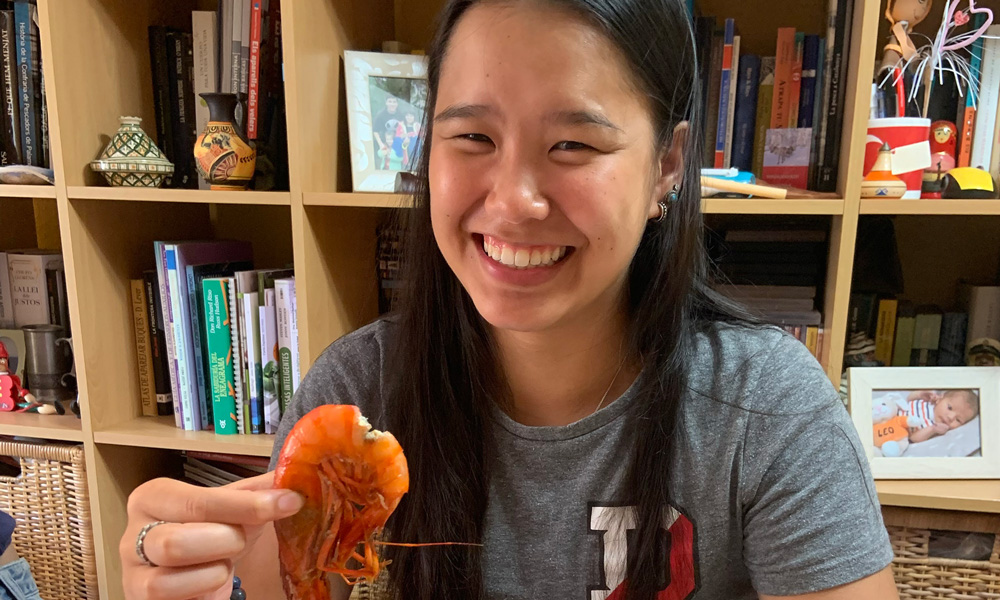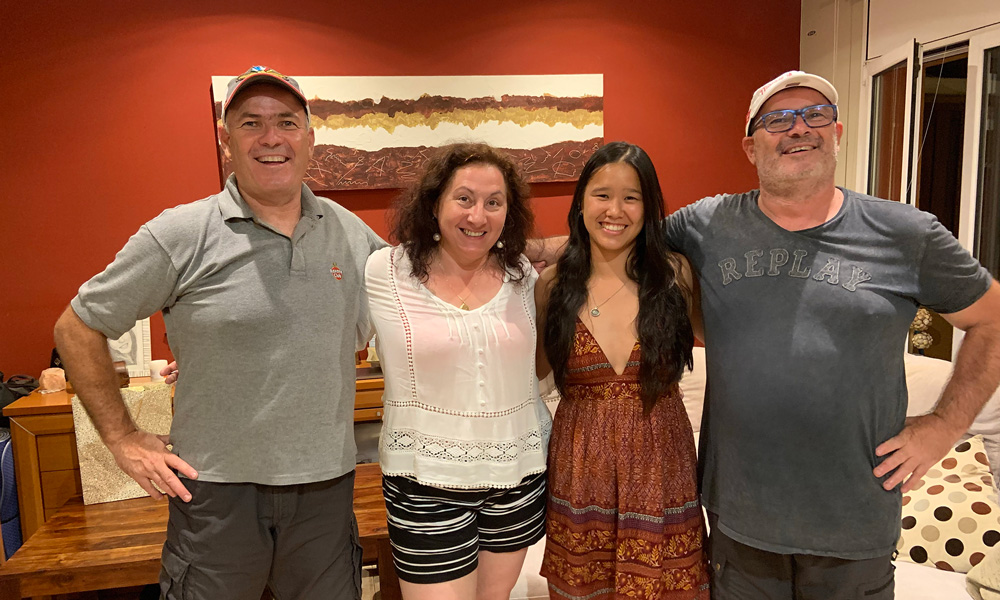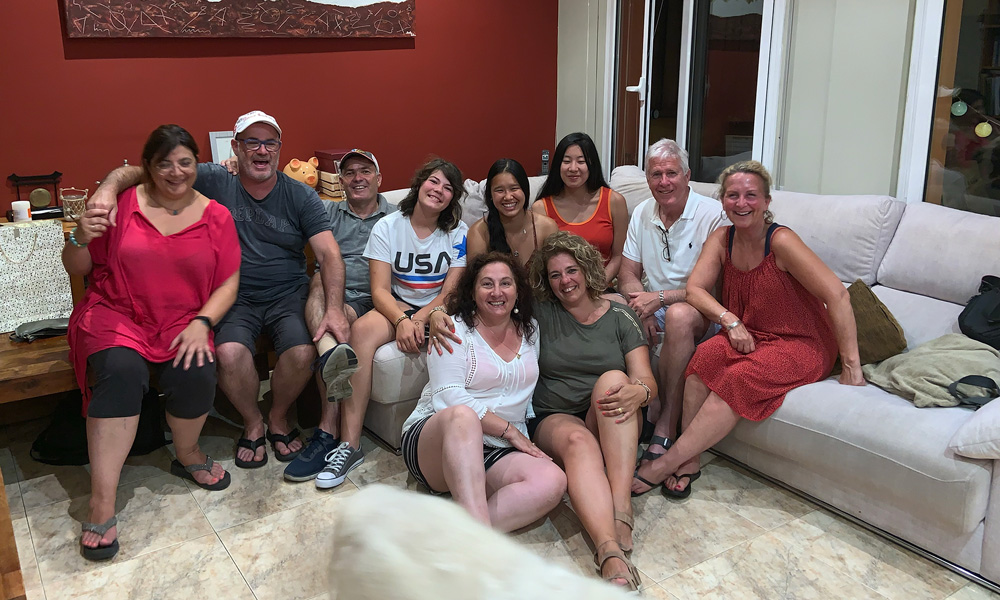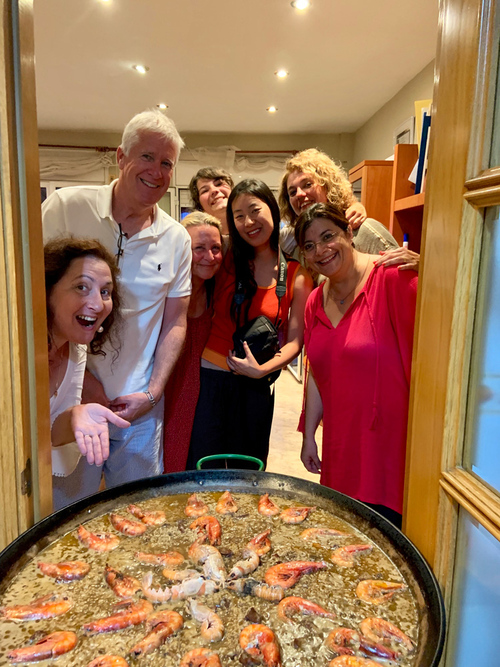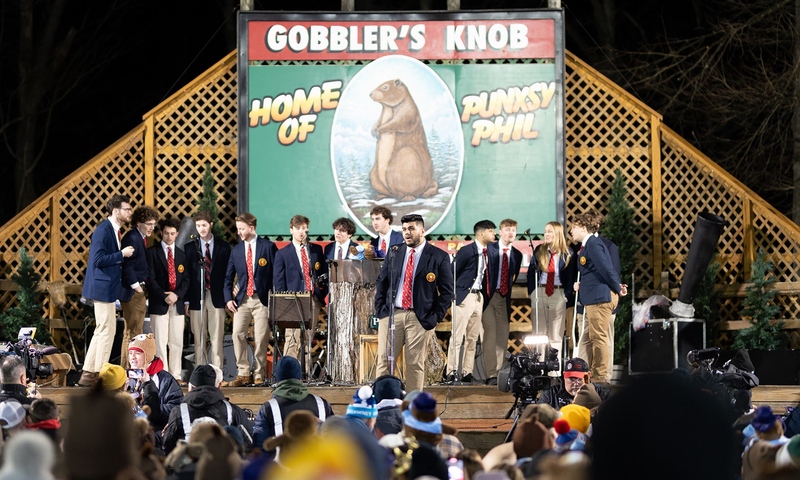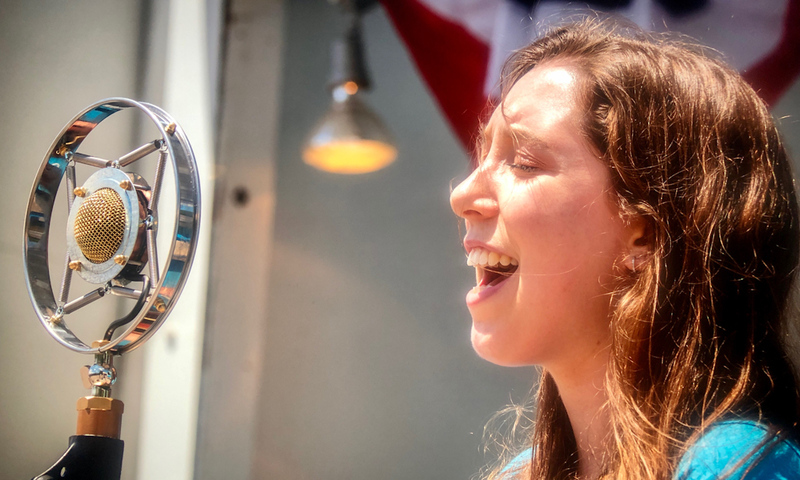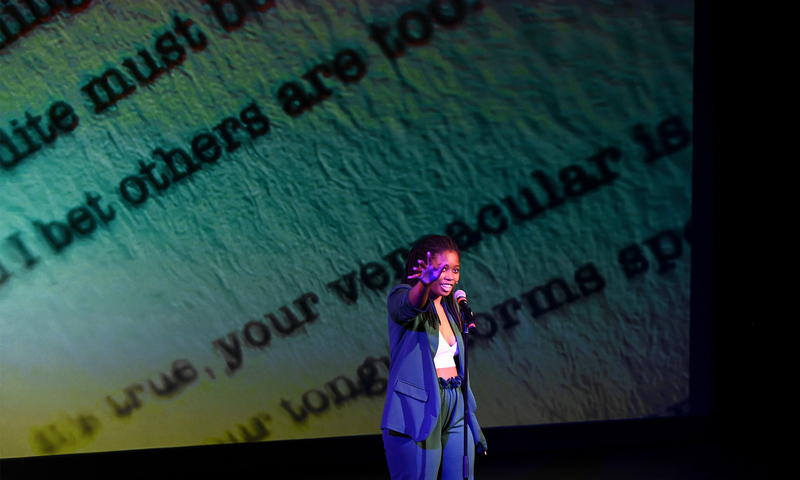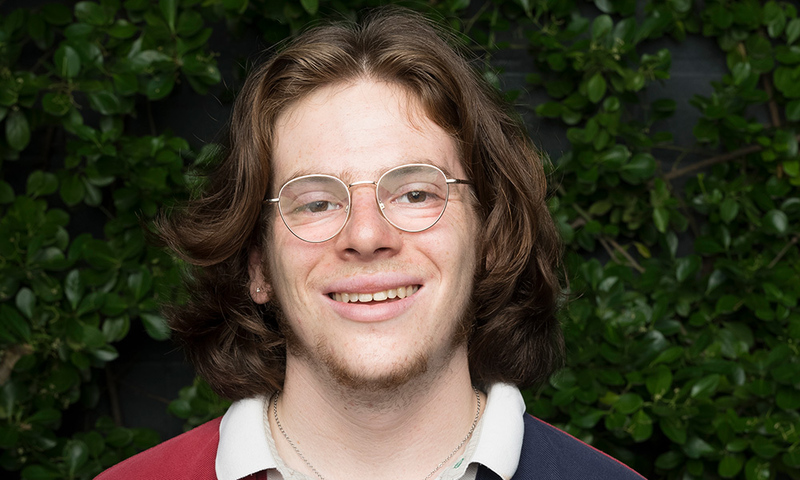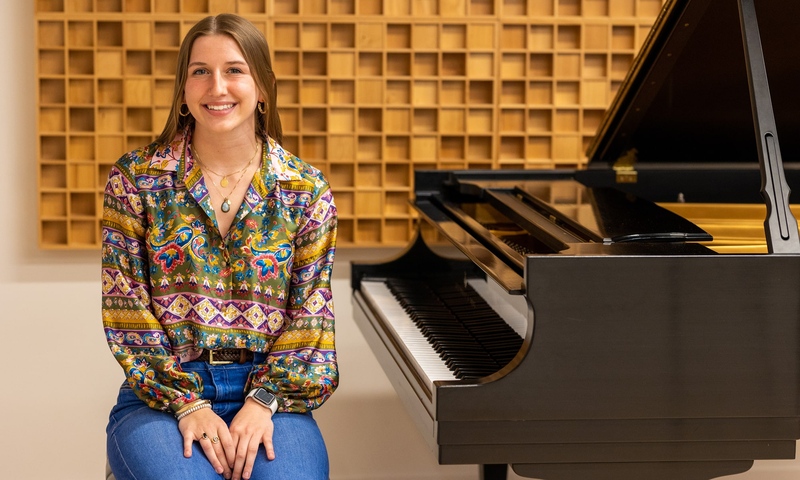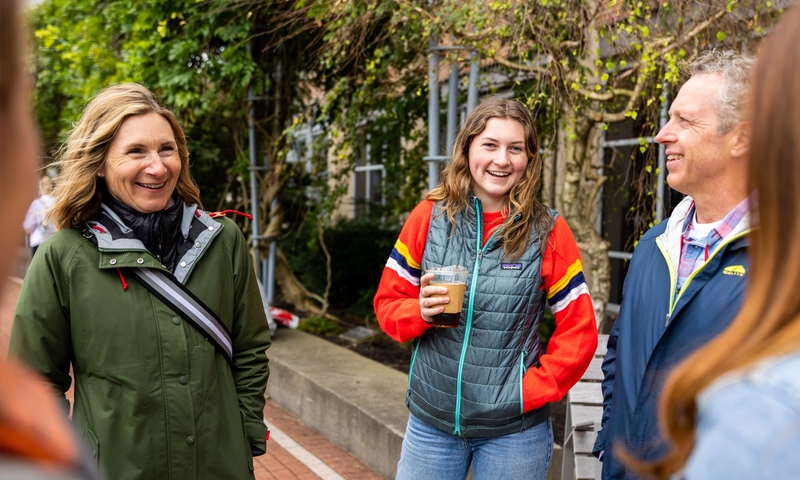Josi Miller ’20 landed at Denison in 2016, and just three years later, she’s interned with the Smithsonian in Washington D.C., spent a semester abroad in Bolivia, and connected the lines between culture and culinary arts for a summer research project in Palamós, Spain. Then she topped it all off by presenting that research at a national conference based at Harvard.
Where does such a college career get started? With Miller, it all began at her June Orientation session, where she met her faculty advisor and mentor, Dosinda Alvite. “We have worked together for four years — she is my academic advisor but she has become my life coach now too,” says Miller, an anthropology/sociology and Spanish double major.
In 2018, during her internship at the Smithsonian’s Center for Folklife and Cultural Heritage, Miller was a foodways intern for the Catalonia program. She helped two fishermen and a baker with their cooking demonstrations and workshops. “Together we made bread, sweets, stews, and rice dishes that reflected the cuisine of their hometowns in Spain,” says Miller.
She enjoyed the work so much that she contacted the two fishermen, Ramón and Félix Boquera, to see if they would be interested in working on a research project with her in the summer of 2019. They agreed and some major brainstorming ensued.
“Essentially, I wanted to practice research methodologies I learned in class, travel abroad, and discover how culinary tourism in Palamós is revitalizing fishermen cuisine and cultural identities.”
“My advisors in Spain made this whole thing happen. With their help, Dosinda’s guidance, and support from the Smithsonian staff I designed a research project about the anthropology of food through the Denison’s Summer Scholars Program,” she adds.
Alvite chimes in, “Josi is hard-working, responsible, timely, and most of all, a very sophisticated thinker. She represents the goals of a liberal arts learner, the concept of learning how to learn, as she has shown through the uncommon research topic she chose. It has been a delight to work with her — and I learned alongside Josi during her summer research.”
In the summer of 2019, Miller lived with two host families as she learned the history of Catalonia and the way of life for people on the Costa Brava. She examined the interconnected systems of Palamós tourism to promote diverse marine species, increase the visibility of fishermen in the restaurant industry, and the relationship between tourists and tourism promoters.
“I explored areas of the world I had never seen. Everything I learned in the field was so fascinating, and experiencing life on the Mediterranean Coast and mountains was incredibly breathtaking.”
Miller’s project, “Is Culinary Tourism Reviving Local Fishermen Cuisine and Cultural Identity? A Case Study in Palamós, Spain,” became the foundation for her senior research for the anthropology/sociology department. Miller works with her professor of anthropology and peers to expand her analysis and translate her work from Spanish to English. “I will use my data to continue reflecting on my experiences and apply theoretical frameworks to make sense of my fieldwork.”
Through it all, Miller and Alvite have collaborated together. “She provided constant support throughout my entire summer research. She challenges me in the classroom, and dedicates time to helping me with my post-grad search. Without her, I never would have had the chance to be in Spain, intern at the Smithsonian, and then go to Harvard’s conference,” says Miller, who wants to continue to learn about food cultures all over the world. “And it’s cool to go from her June-O advisee to her teaching assistant.”
More about Josi Miller’s research:
Abstract for “Is Culinary Tourism Reviving Local Fishermen Cuisine and Cultural Identity? A Case Study in Palamós, Spain”
The purpose of this study is to explore the intersectionality between culinary tourism, cultural heritage, and local fishermen cuisine in Palamós Spain to capture a holistic understanding of their cultural identities. My investigation includes reading and synthesizing a rich bibliography about gastronomy and Catalonia and experiential learning in Palamós, Spain for six weeks. To answer my research questions and evaluate how my work will contribute to existing literature, I read various articles and books that discuss key concepts such as culinary tourism, Catalonian gastronomy, national and local identity, foodways, and cultural heritage. The results indicate that the Fish Museum, Fish Space, El Gingoler, Masterpeix, and fishing tourism are revalorizing fish that are less known, the Red Prawn of Palamós and increasing the presence of fishermen in the restaurant industry. Through ‘showcookings,’ Masterpeix courses, talks, guided visits and interactions with chefs, tourists and fishermen, it appears as if they are diversifying local gastronomy and giving more visibility to the fishermen in Palamós.
Miller presented her research at The National Collegiate Research Conference at Harvard, a competitive international undergraduate conference with only 200 students accepted.
Funding for research at Denison:
Denison offers generous stipends for research, internships, conference travel and more. Miller was provided funding from the Knowlton Career Center and the Lisska Center for Scholarly Engagement.
